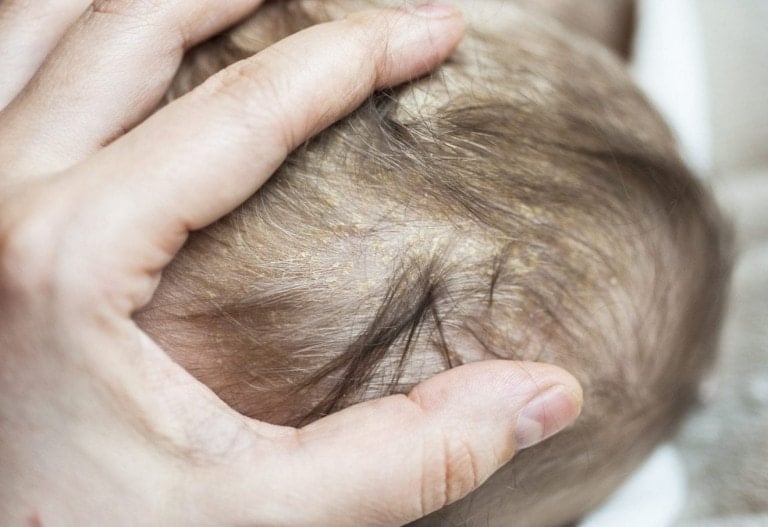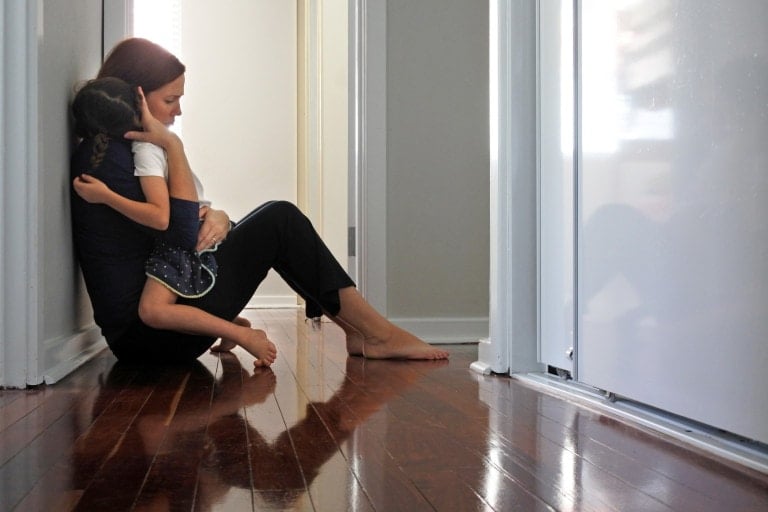Two weeks is a significant milestone in having a newborn, so congrats! It doesn’t sound like a long time in any other stage of life, but two weeks is a huge deal! As your baby reaches two weeks old, you should be getting into a bit of a routine. You are starting to figure out what’s normal for your unique baby and what works best for both of you. Here is what to expect when it comes to feeding and sleeping for your two-week-old baby!
Feeding and Sleep Expectations for Your Two-Week-Old Baby
Feeding Your Two-Week-Old Baby
Most full-term healthy babies are back up to birth weight by two weeks of age. Remember, it’s normal for babies to lose weight initially, then start to regain weight by around 3-5 days of life. They gain around one ounce per day during this time.
Once your baby is growing well and above birth weight, it’s usually okay to let him sleep! Babies around two weeks old can usually sleep for longer stretches in 24 hours. So, I like to recommend waking your baby during the day to feed. This way, the long periods are more likely to happen at night, and you can let yourself sleep, too!
Your baby still has a tiny tummy that can’t hold a lot, so they will still need to feed often. Breastfed babies feed around 8 to 12 times daily, about every 1 to 3 hours. Bottle-fed babies often feed a little less frequently, about every 2 to 4 hours, getting about 6 to 8 feedings daily. They usually take around 2 to 3 ounces per feed.
Notes About Breastfeeding
If you’re breastfeeding, it’s important to note that nursing is a supply-and-demand process. This means the more your baby feeds, the more milk your body will make. Your baby feeding and emptying your breasts stimulates your brain to produce more milk through a hormone called prolactin. So, the more your baby feeds, the more prolactin is made, and the more milk your body will make. Pumping can stimulate this process, too. The supply and demand phenomenon of nursing is why feeding your baby on demand is recommended. Use your baby’s hunger cues to feed when they’re hungry. By doing this, most women who choose to nurse will make just the right amount of milk their baby needs.
When breastfeeding is going well, your breasts should feel full before a feed and softer afterward. You might still need help with an extra set of hands or nursing pillows to get in the correct position. And your baby might take a few tries to latch. However, if the latch doesn’t feel right or painful, don’t suffer through it. You don’t want to teach your baby to be an infective feeder and destroy your nipples. So gently break the suction, take your baby off the nipple, and try again.
When to Seek a Lactation Consultant
If you want to breastfeed but have concerns about how it’s going, you should seek help from a lactation consultant soon. Here are some common reasons you should get a lactation consult:
- Maternal nipple pain with nursing.
- Poor weight gain in the baby with nursing alone.
- Baby is not satisfied after nursing.
- Baby is fussy at the breast, has difficulty, or refuses to latch.
- Feeding multiples or a baby with special needs.
- Maternal health issues.
- Pumping questions or concerns.
Notes About Engorged Breasts
Some women experience an oversupply of breast milk. While this may sound like not a bad problem, it can be tough to deal with. The breasts can become swollen and quite painful. Here are some tips for dealing with engorged breasts:
- Hand-express a small amount of milk from your breasts to soften them up before nursing. This may help the baby to latch on better.
- Try a warm shower or warm compresses before nursing.
- Try a cool compress if your breasts are still painful and sore after nursing.
- If your breasts are very painful, not improving, red and swollen, or you have a fever, please contact your healthcare provider.
Sleep and Your Two-Week-Old Baby
Now, what about sleep? For those first two weeks, newborns are very sleepy little beings, and you usually spend much of your time trying to wake them up to feed. But around two weeks old, babies tend to “wake up” a little, which is very exciting! They’re becoming more alert. But they still need around 16 hours of sleep in 24 hours. The problem is that they usually don’t sleep for more than a few hours at a time.
This is for several reasons, like their tiny tummies and need to feed often, and they don’t have an established circadian rhythm. A circadian rhythm is like your own internal clock. In utero, babies usually follow the mother’s circadian rhythm. Once the baby is born, though, that internal clock is gone. Some say their days and nights are mixed up for at least the first 6 to 8 weeks. Many parents find themselves with a newborn who easily falls asleep during the day but is difficult to settle at night.
Notes About Safe Sleep Practices
Since your sleeping patterns inevitably tend to mimic your baby’s, it’s very tempting to fall asleep while holding your newborn baby. However, it is crucial always to practice safe sleep practices for your baby. Here are the recommendations for safe sleep, per the American Academy of Pediatrics:1
- Separate from your bed, so in a bassinet or crib in your room.
- On a firm mattress.
- Always put your baby down on his back. If he rolls to the side, it’s okay, but do not place him that way.
- Make sure there’s nothing else around. No stuffed toys, loose blankets, pillows, or bumpers!
- A tight swaddle is okay. Once your baby can roll over, though, usually around four months of age, but can be sooner or later, you need to stop swaddling with arms in.
- Don’t overheat the baby. A cooler temperature is better, around 68 to 72 degrees F. Use your baby’s chest to indicate if he’s too hot or cold, not the hands or feet, as those will be colder than the rest of the body.
- Pacifiers are okay.
- No smoking.
- Do not leave your baby sleeping on a couch or chair, as it is an unsafe place, and they can fall off.
- Do not let your baby fall asleep on nursing pillows or pillow-like lounging pads.
During the day, while you have stuff to do or just want to go for a walk, putting the baby in a stroller or baby carrier while they sleep is great. These tools are great, so take advantage! If your baby doesn’t like them at first, keep trying. Because if there’s one thing that’s true about newborns, it’s that no stage lasts long!
I hope you are enjoying each and every minute with your beautiful two-week-old baby! Every day, you will notice something new and see how your baby grows before your eyes. It’s a beautiful thing to witness! Remember, these days may be challenging in a lot of ways. But don’t forget you are doing a fantastic job (even if you don’t feel that way!). Keep it up!































